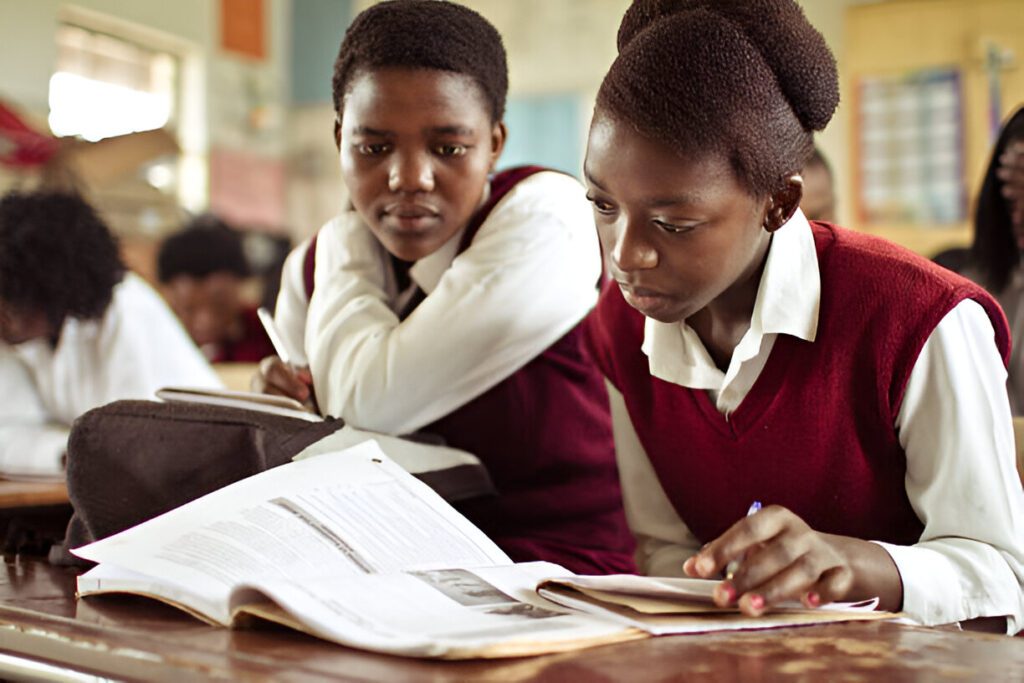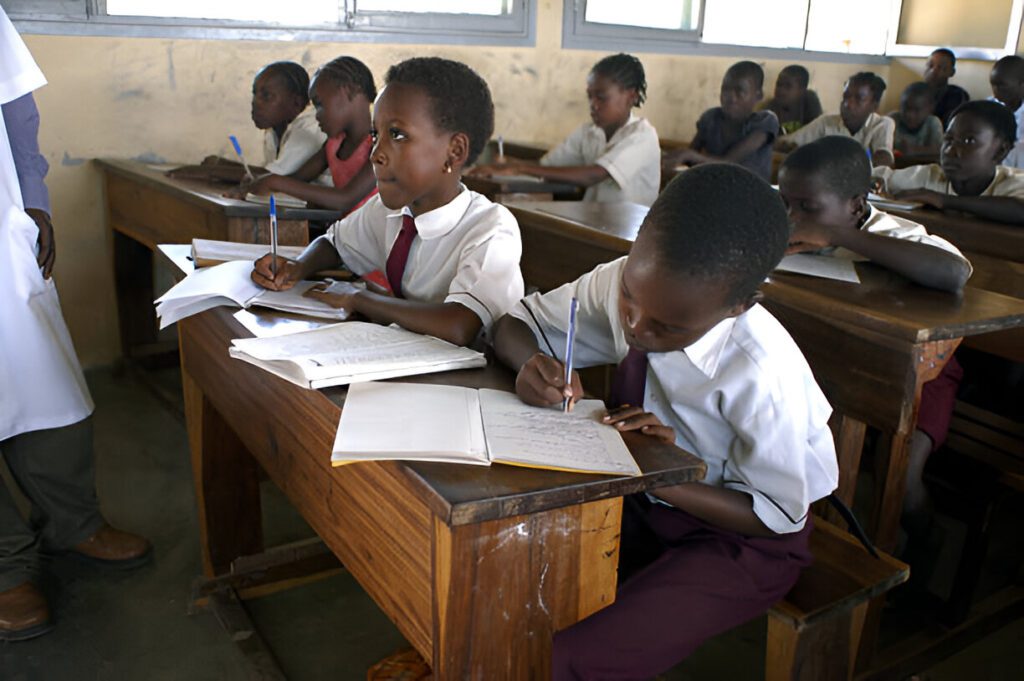Education challenges in Nigeria have been prevalent in the country for a long time. However, this article will reveal the real truth behind all these challenges faced in the Nigerian educational system.
Ensure to read the article to the ends so as not to miss any detail, also feel free to skip ahead using the table of contents tool
Nigeria’s educational system is one of the largest in Africa, serving over 200 million people. It consists of three major tiers: primary, secondary, and tertiary education. Despite its vast size and the federal and state government’s efforts, the sector faces many challenges.
From poor funding to corruption and security issues, these challenges hinder the delivery of quality education to millions of Nigerian students. The real truth behind the state of Nigeria’s education lies in addressing the root causes of these problems, understanding their effects, and proposing realistic solutions.
Here the Education Challenges in Nigeria
Chronic Poor Funding of Education
Education funding in Nigeria consistently falls short of the United Nations Educational, Scientific, and Cultural Organization (UNESCO) recommendation of allocating 15-20% of national budgets to education. Nigerian governments, both federal and state, allocate around 7% on average.
This chronic underfunding results in dilapidated infrastructure, lack of teaching materials, overcrowded classrooms, and underpaid teachers. Schools across the country, especially in rural areas, struggle with inadequate facilities, leading to poor learning environments and outcomes.
Impact of Poor Funding on Infrastructure and Resources
The lack of investment has also led to outdated resources such as textbooks, science equipment, and technology, limiting the ability of students to compete globally.
Teacher Shortages and Unqualified Personnel
The teacher-to-student ratio in Nigeria is among the worst in the world. UNESCO statistics reveal a significant gap in the number of teachers needed to meet the growing population of students.
In addition, many teachers lack the required qualifications, particularly in public schools. Rural areas face even more dire shortages, with some schools lacking teachers in key subjects such as mathematics and science.
Causes of Teacher Shortages
This shortage can be traced to low salaries, lack of incentives, and poor working conditions, making teaching an unattractive profession.
The Need for Professional Teacher Training
Continuous professional development is necessary to ensure teachers stay updated with the latest pedagogical techniques and advancements in educational technology.
Neglect of Continuous Teacher Development
Teachers in Nigeria seldom receive training after their initial qualification. Without opportunities for continuous education, teachers’ skills become outdated, leaving students at a disadvantage in a rapidly changing world.
The absence of professional development opportunities reduces teaching quality and contributes to the stagnation of educational standards.
Outdated Teaching Methods
Many teachers still employ rote learning techniques, which limit students’ critical thinking abilities. Modern approaches like interactive and student-centered learning are not widely used due to the lack of training.
Mismatch Between Population Growth and Educational Capacity
Nigeria’s population is projected to become the third largest in the world by 2050. Yet, the growth of educational infrastructure has not kept pace with the rapid population increase. As a result, schools are overcrowded, and resources such as textbooks, desks, and even teachers are stretched thin.
Strain on Resources and Teachers
The overpopulation in classrooms has led to an overwhelming teacher-to-student ratio, making it difficult for teachers to provide personalized attention to students. The demand for education has surpassed the available supply.
University Admission Bottlenecks
Nigeria’s universities cannot accommodate the rising number of students seeking higher education. The Joint Admissions and Matriculation Board (JAMB) receives millions of applications annually, but only a fraction are admitted due to limited spaces.
Quota System and Admission Challenges
The quota system, while aimed at ensuring equal representation of different regions, sometimes results in capable students being denied entry due to regional allocation imbalances.
Corruption, Academic Fraud, and Indiscipline

Academic fraud has become a pervasive issue in Nigerian institutions. From bribing lecturers to altering exam results, the education sector is plagued by unethical practices that undermine its credibility.
Examination Malpractice
Widespread cheating in national exams like the West African Senior School Certificate Examination (WASSCE) and JAMB has cast doubt on the reliability of Nigeria’s academic standards.
Impact on Graduates
Graduates enter the workforce with questionable qualifications, affecting their job prospects and the country’s overall development.
Poverty, Standard of Living, and Education
Nigeria’s poverty rate has a direct impact on education. Children from low-income families are often unable to attend school due to school fees, uniform costs, or the need to work to support their families.
School Dropout Rates
Many students, especially girls, drop out of school due to economic hardships, resulting in a cycle of poverty and illiteracy.
Political Interference and Policy Gaps in Education
Frequent changes in government policy have led to instability in the educational system. Education is often used as a political tool, with policy shifts based on political agendas rather than the actual needs of the system.
Advocacy for Non-Politicized Education Reforms
Education should be insulated from politics to ensure the stability and continuity of reforms aimed at improving the system.
Outdated Curriculum and Its Impact on Learning

Nigeria’s educational curriculum has failed to evolve with the demands of a 21st-century economy. The current curriculum does not sufficiently equip students with the skills needed in today’s globalized world.
STEM Education and Digital Literacy
There is an urgent need to integrate Science, Technology, Engineering, and Mathematics (STEM) and digital literacy into the curriculum to ensure Nigerian students remain competitive globally.
Security Issues in Schools
Insecurity, particularly in northern Nigeria, has led to the closure of schools and the abduction of students. Armed groups have targeted educational institutions, particularly those focused on girls’ education, contributing to lower attendance and a growing fear of schooling.
Kidnappings and Banditry
The fear of abduction has caused widespread school closures in several states, further exacerbating the education crisis.
Examination Malpractice and Its Impact
Examination malpractice has become widespread across Nigerian educational institutions. This issue not only undermines the integrity of the examination process but also damages the country’s educational reputation.
Effect on Quality of Graduates: Graduates entering the workforce with fake qualifications lack the skills necessary to contribute meaningfully to the economy.
Limited Access to Quality Education
Disparities between urban and rural areas result in unequal access to education. Rural areas suffer from inadequate facilities, while urban schools are often overcrowded.
Barriers for Marginalized Groups
Gender, disability, and ethnic minorities face additional barriers to accessing quality education.
Declining Quality of Education
Learning outcomes in Nigeria are steadily declining. Many students graduate from secondary school without mastering basic reading, writing, or mathematical skills.
Poor Teacher-Student Ratio
Overcrowded classrooms and poorly trained teachers result in subpar educational experiences.
Language and Cultural Barriers in Learning
Nigeria’s linguistic diversity poses a unique challenge in education. English is the official language of instruction, but many students, particularly in rural areas, are more proficient in indigenous languages.
The Role of Indigenous Languages in Learning
Bilingual education could help bridge the gap, ensuring students can learn in both English and their native languages.
Vocational and Technical Education: A Neglected Sector
Nigeria’s focus on formal education has led to the neglect of vocational and technical training. This has contributed to high youth unemployment, as many graduates lack practical skills.
Integrating Vocational Training into Schools
Strengthening vocational and technical education could provide youth with the skills necessary for self-employment and entrepreneurship.
Digital and Technological Divide

The digital divide between urban and rural schools in Nigeria is stark. Many schools in rural areas lack basic ICT infrastructure, while urban schools have limited resources to fully incorporate digital learning into the curriculum.
Bridging the Digital Divide
Government and private sector partnerships could help provide the necessary infrastructure and training to integrate technology into the classroom.
Mental Health and Well-being of Students
Mental health is often overlooked in Nigerian schools, but academic pressures and socio-economic challenges can lead to anxiety, depression, and poor academic performance.
The Need for Counseling Services in Schools: Introducing counseling services and mental health awareness programs in schools could help students manage their emotional well-being.
Special Education Needs and Inclusivity
Children with disabilities face significant barriers in Nigeria’s education system. There is a severe lack of resources, trained personnel, and infrastructure to support inclusive education.
Policies and Programs for Inclusivity
The government needs to prioritize special education policies to ensure every child, regardless of their physical or mental abilities, has access to quality education.
Recommendations and Opportunities for Improvement
To address these challenges, a comprehensive overhaul of Nigeria’s education sector is necessary. Key recommendations include:
- Increased funding: Allocate at least 15% of the national budget to education.
- Curriculum reform: Align the curriculum with modern economic needs, focusing on STEM and vocational training.
- Teacher training: Invest in continuous teacher development and provide incentives to attract more qualified teachers.
- Policy consistency: Ensure educational policies are evidence-based and free from political interference.
- Partnerships: Leverage partnerships with the private sector and international organizations to improve infrastructure and digital learning.
Conclusion: The Way Forward for Nigerian Education
Nigeria’s education sector faces numerous challenges, but with targeted reforms, there is an opportunity to turn the tide. Addressing funding gaps, teacher shortages, curriculum relevance, and the digital divide, while tackling issues like corruption and insecurity, will be key to transforming Nigeria’s education system for future generations.
Sustainable progress requires collaboration between the government, private sector, and civil society to ensure all Nigerian children have access to quality education.
Feel free to share this article using the social media handles below



